 4 citations,
April 2020 in “Journal of Cosmetic Dermatology”
4 citations,
April 2020 in “Journal of Cosmetic Dermatology” Low vitamin D levels are linked to different types of hair loss.
 3 citations,
January 2022 in “Journal of Infection”
3 citations,
January 2022 in “Journal of Infection” Some early COVID-19 mutations in patients predicted future common virus mutations.
2 citations,
May 2020 in “Journal of the American Academy of Dermatology” Using certain hair products may increase breast cancer risk in black women.
 2 citations,
January 2019 in “Annals of Dermatology”
2 citations,
January 2019 in “Annals of Dermatology” Certain gene variations in EGF and EGFR may increase the risk of alopecia areata in Koreans.
 2 citations,
April 2017 in “European Urology”
2 citations,
April 2017 in “European Urology” Using finasteride for hair loss or prostate issues does not significantly raise the risk of erectile dysfunction.
1 citations,
October 2022 in “Journal of Cosmetic Dermatology” Combining microneedling with 2% minoxidil is more effective and safe for treating female pattern hair loss than using minoxidil alone.
 1 citations,
March 2022 in “medRxiv (Cold Spring Harbor Laboratory)”
1 citations,
March 2022 in “medRxiv (Cold Spring Harbor Laboratory)” Polycystic Ovary Syndrome (PCOS) increases the risk of mental health disorders, but its impact on Black Asian Minority Ethnic groups isn't fully known.
1 citations,
August 2021 in “Medical Science Monitor” Male and female hair loss have different genetic causes.
1 citations,
August 2021 in “International Journal of General Medicine” Severe and early hair loss may indicate a higher risk of heart disease.
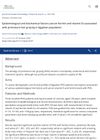 1 citations,
October 2020 in “Journal of Cosmetic Dermatology”
1 citations,
October 2020 in “Journal of Cosmetic Dermatology” Low iron levels are linked to premature graying of hair, but vitamin D levels are not.
 December 2024 in “Journal of Cutaneous and Aesthetic Surgery”
December 2024 in “Journal of Cutaneous and Aesthetic Surgery” Dermoscopy effectively assesses and improves acne scar treatments.
 November 2024 in “Australasian Journal of Dermatology”
November 2024 in “Australasian Journal of Dermatology” The study's methods are flawed, making its conclusions about finasteride and mental health unreliable.
 September 2023 in “Journal of the American Academy of Dermatology”
September 2023 in “Journal of the American Academy of Dermatology” Oral terbinafine is more effective than griseofulvin for treating certain scalp infections in children.
July 2023 in “Current Developments in Nutrition” 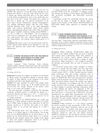
Higher disease activity in systemic lupus erythematosus is strongly linked to more internal organ damage.
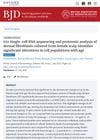 July 2023 in “British journal of dermatology/British journal of dermatology, Supplement”
July 2023 in “British journal of dermatology/British journal of dermatology, Supplement” Aging changes scalp cells, possibly affecting hair health in older women.
 April 2023 in “American Journal of Transplantation”
April 2023 in “American Journal of Transplantation” Hormone replacement therapy may lower the risk of severe COVID-19 outcomes in non-immunosuppressed people and male organ transplant recipients.
 November 2022 in “Journal of Investigative Dermatology”
November 2022 in “Journal of Investigative Dermatology” Short-term treatment with ROCKi increases skin cell growth without changing stem cell features.
 August 2022 in “medRxiv (Cold Spring Harbor Laboratory)”
August 2022 in “medRxiv (Cold Spring Harbor Laboratory)” Certain groups of medications given when leaving the hospital are linked to a higher risk of negative drug reactions within 30 days, especially in older adults with respiratory issues.
 March 2021 in “Research Square (Research Square)”
March 2021 in “Research Square (Research Square)” Stress likely causes hair loss in Formosan macaques.
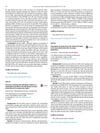 October 2017 in “Indian heart journal”
October 2017 in “Indian heart journal” Higher levels of small, dense LDL cholesterol are linked to a greater risk of heart attack in young adults.
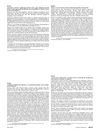 February 2013 in “Journal of the American Academy of Dermatology”
February 2013 in “Journal of the American Academy of Dermatology” Certain gene variations might increase the risk of a hair loss condition in Koreans.
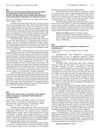 March 2009 in “The Journal of Urology”
March 2009 in “The Journal of Urology” Low dose finasteride causes only minor changes in PSA levels in men over 50 with BPH.
 February 2009 in “Journal of The American Academy of Dermatology”
February 2009 in “Journal of The American Academy of Dermatology” Certain immune system genes are linked to a higher risk of psoriasis and psoriatic arthritis, while others may offer protection.
January 2020 in “Medpluse International Journal of Anatomy” 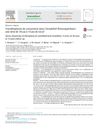 May 2015 in “Journal of The American Academy of Dermatology”
May 2015 in “Journal of The American Academy of Dermatology”  156 citations,
October 1996 in “Science of The Total Environment”
156 citations,
October 1996 in “Science of The Total Environment” Tributyltin exposure causes sex changes, sterilization, and decline in the snail Ocinebrina aciculata, risking its extinction.
 49 citations,
June 2003 in “European journal of cardiovascular prevention & rehabilitation”
49 citations,
June 2003 in “European journal of cardiovascular prevention & rehabilitation” Hair loss in middle-aged women is often linked to insulin resistance and a family history of hair loss, particularly from their fathers.
 24 citations,
August 2005 in “Health and Quality of Life Outcomes”
24 citations,
August 2005 in “Health and Quality of Life Outcomes” Women with androgenetic alopecia experience worse physical well-being and quality of life, but similar mental health compared to those without it.
 23 citations,
July 2021 in “Advances in Therapy”
23 citations,
July 2021 in “Advances in Therapy” Most people with Alopecia Areata don't get treatment within a year; it's costly and often comes with other health issues.
























